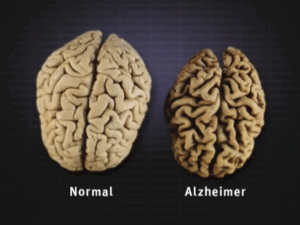Exploring the way our brains preserve memories and the important role that sleep plays in solidifying them.
We all hear about how we should get enough sleep and how important sleep is, but what does that really mean? The average teenager today receives around six hours of sleep per night when the recommended amount is eight to ten hours (1), which can lower learning abilities by up to 40% (2). Sleep is crucial for not just physically resting, but also providing optimal conditions for the brain to store memories and declutter old, unimportant information (3).
There are four distinct stages of sleep: two stages of light NREM (non-rapid eye movement), deep NREM, and REM (rapid eye movement). The first stage of light NREM occurs when one first falls asleep: the brain and body slow down between periods of brief movement. The second stage of light NREM involves a more relaxed state of the body, where body temperature drops, muscles relax, and breathing and brain activities slow (4). The third stage of sleep is deep NREM or slow-wave sleep (known as such due to the brain’s production of delta waves during deep sleep). During this phase, pulse and breathing rate decreases; NREM is critical to bodily recovery and growth because it boosts the immune system and releases essential hormones (4, 5).

The final stage of sleep, REM, is the most important phase for memory. During REM, bodily functions (heart rate, breathing, etc.) speed up and the body experiences atonia—a temporary paralysis of the whole body except for the eyes and breathing muscles (4). Dreams occur in REM sleep as the thalamus transmits information from the five senses to the cerebral cortex: a thin layer of the cerebrum that processes information from memories which is then integrated into dreams (2). At the point of heightened brain activity during sleep, the brain undergoes memory consolidation, a key phase in the formation of episodic memories (memories from specific events or experiences) (3, 5).
Two primary phases occur in the formation and retention of episodic memories: memory encoding and memory consolidation. Memory encoding occurs in the moment: the brain takes in information from the outside world and encodes it in sequences within networks of neurons in the hippocampus. The connected neurons fire after one another to develop and solidify details of the memory. At some point during this process, the amygdala attaches emotional significance to the memories (3), which is why we often feel certain emotions when remembering a past event.
Memory consolidation happens during sleep, specifically the REM stage. Sleep provides optimal conditions for consolidation because it limits external stimulation and increases levels of communication between the hippocampus and neocortex (where memories are stored). Scientists do not know exactly how sleep enhances memory, but they believe that the hippocampus replays the events of the day for the neocortex, which then reviews and processes the memories, solidifying them into a long-term form (6). Sleep also allows the brain to clear neural links tied to memories that are no longer useful, which makes space for new memories. The buildup of waste metabolites—byproducts of intense neural activity, such as lactate, carbon dioxide, and proteins—can result in cognitive diseases such as Alzheimer’s (3).
So the next time you decide to pull an all-nighter or cram before your test, keep in mind that it may be more beneficial to simply get some rest—sleeping is not a time-waster.
Bibliography:
1. Teenagers and Sleep. Better Health Channel.
https://www.betterhealth.vic.gov.au/health/healthyliving/teenagers-and-sleep
2. Noyed, D. (2025, July 10). How Memory and Sleep are Connected. Sleep Foundation.
3. (2022, May 10). Sleep’s Crucial Role in Preserving Memory. Yale School of Medicine. https://medicine.yale.edu/news-article/sleeps-crucial-role-in-preserving-memory
4. Suni, E. (2025, July 25). Stages of Sleep: What Happens in a Normal Sleep Cycle. Sleep Foundation.
5. (2024, March 27). Sleep Stages and Memory. Harvard Health Publishing. https://www.health.harvard.edu/healthbeat/sleep-stages-and-memory
6. Brain Basics: Understanding Sleep. National Institute of Neurological Disorders and Stroke. https://www.ninds.nih.gov/health-information/public-education/brain-basics/brain-basics-understanding-sleep
Images:
1. https://www.everydayhealth.com/healthy-aging/understanding-brain-anatomy/






Comments are closed.